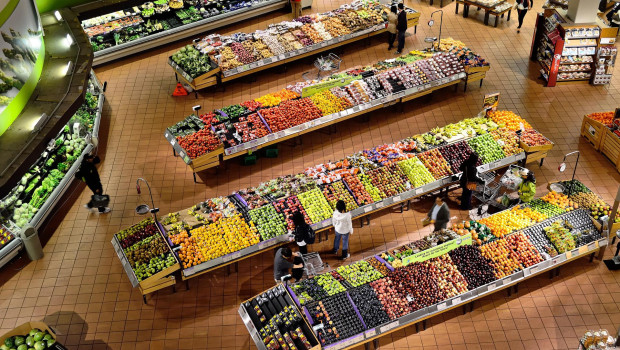Food companies pushing up prices by more than costs - CMA

The competition watchdog has accused food companies of pushing up prices by more than costs, adding to inflation.
The Competition and Markets Authority acknowledged on Wednesday that surging food inflation has been driven largely by rising input costs.
But it also identified a number of categories, including milk, baked beans, pet food and baby formula, where around three quarters of branded suppliers had increased their unit profitability, therefore contributing to higher food price inflation.
Inflation now stands at 4.6% having peaked at 11.1% last year. But food inflation has proved more stubborn. According to the Office for National Statistics, prices of food and non-alcoholic beverages rose by 10.1% in the year to October 2023.
The CMA noted that most shoppers had avoided higher-priced branded products by either switching to cheaper own-brand labels, or reducing consumption.
But shoppers were less able to do so with baby formula, where prices have risen by 25% over the last two years.
"Evidence suggests that branded suppliers of baby formula have increased their prices by more than their input costs," the CMA noted.
"On top of this, the market is highly concentrated - two firms have around 85% of the market share - and brands have maintained high profit margins over the last two years."
The watchdog said it would now probe the baby formula market further, including looking at potential changes to the regulatory framework.
It also said it would review loyalty card pricing by supermarkets, over concerns that cheaper prices are only being made available to people in the schemes.
Sarah Cardell, chief executive, said: "Food price inflation has put high strain on household budgets, so it is vital competition issues aren’t adding to the problem.
"While in most cases the leading brands have raised prices more than their own cost increases, own label products are generally providing cheaper alternatives.
"The picture is different when it comes to baby formula.
"We’re concerned that parents may not always have the right information to make informed choices and that suppliers may not have strong incentive to offer infant formula at competitive prices."
The CMA said it will report on both the baby formula market and supermarket loyalty schemes in early 2024.